ГДЗ Англійська мова 6 клас. Підручник [Калініна Л.В., Самойлюкевич І.В.] 2014
Unit Three: School Life
p. 71, ex. I. Schoolchildren can have lessons on different subjects at the computer lab.
Schoolchildren can have English lessons at the language lab.
Schoolchildren can have concerts in the assembly hall.
Schoolchildren can have lunch in the canteen.
Schoolchildren can have P.E. lessons in the gym.
p.72, ex. 1b.
1. Can you play table tennis?
2. Must I get up early?
3. May I use your computer?
4. Must you visit the doctor?
5. May we open the window?
6. Can Dan speak Spanish?
p. 73, ex. 2.
1. Nick comes to school in time. — Nick is punctual.
2. Ann plans her time beforehand. — Ann’s routine is well-planned.
3. Val joined a new sport society. — Val signed up for a new sport society.
4. As a rule we do a lot of things at school.— We manage to do a lot of things at school.
5. Children work much at the lessons. — Children work hard at the lesson.
6. My brother often forgets things. — My brother is absent-minded.
p. 73, ex. 2a.
1. May you leave the classroom during the lesson? — No, I mustn't.
2. Must you go to school on Sunday? — No, I needn't.
3. Must your little sister/brother play all days? — No, she needn’t.
4. May you be late for classes? — No, I mustn’t.
5. May you sing during the lesion? — No, I mustn’t.
6. Must your neighbour at the desk talk during the lesson? — No, he mustn’t.
p. 73, ex. 2b.
Example: — Must I translate the word?
— No, you needn’t.
1. May I eat at the lesson? — No, you mustn’t.
2. Must I do this task? — No, you needn’t.
3.Can they dance? — No, they can’t.
4. Must he get up early? — No, he needn’t.
5. May she open the window? — No, she mustn’t.
6. May you be late? — No, I mustn’t.
p. 74.
At home. My working day begins at 7 o’clock. I get up and begin my day with some exercises. I try to be punctual so I am never late for school. I usually work hard at the lessons. One can’t call me absent-minded. After school I usually go to the swimming pool. It’s great. At home I have a short rest and do my homework. I think, my routine is well-planned because I manage to do a lot of things.
p. 75, ex. 2.
1. The book isn’t interesting enough for me.
2. Hurry up! You are too slowly.
3. Steve hasn't enough time to finish his test.
4 .We have enough work at every lesson.
5. Turnoff the music, please. It is too loud.
6. My sister is a top pupil. She is clever enough.
p. 75, ex. 3.
“It's easier said than done.” — Steve said to Ann, because he was lazy. “You can't crib all the time!” — Ann said to Steve, because she didn’t want him to copy the homework.
“You can’t crib all the time!” — Ann said to Steve, when he told her about his routine. “I did sth at the last minute, but not half enough.” — Steve said to Ann when he spoke about his routine.
“I can't help admiring it!” — Steve said to Ann describing the film about Harry Potter. “That won't do.” — Ann said to Steve, because his routine wasn’t well — planned.
p. 76, ex. 2.
A: Hey, Mike. I bet, you have done all the lessons. May I take your copy-book?
B. No, you mustn't. You can’t crib all the time. I managed to do all my lessons orally and in writing.
A: How clever of you. You've always been a model boy.
B. Do you mean to say that you didn’t do any lessons? They are not too difficult.
A: Frankly speaking, I did something at the last minute, but not half enough.
B: Typical, Just typical. You always waste your time. What a lazy bones you are! Do everything in time.
A: It's easier said than done.
B: That won't do! We had only four lessons yesterday and you had enough time to get ready for the next school day. You are too lazy, Susan.
A: I’ll, try. And may I ask you to help me?
p. 77, ex. I.
Conversation, Warm-up.
I think Boris likes PT lessons .You can often see him in the gym.
I think Olha enjoys painting. She attends the art — studio.
I think, Alex likes ICT lessons you can often see him in the computer class.
I think, Helen Likes geography. She knows a lot about cities and countries.
p. 77, ex. VIII.
Write a letter to your international friend about your school routine and answer his questions.
Dear John.
How are you? Thank you for the letter. You ask me about my school routine. I’ll tell you some words about it. School starts at 8.30. We usually have 6 lessons f day. I’m good at English and literature? But I have some problems with maths. My routine is well — planned, so I try to do my homework myself. My friend sometimes helps me with Maths and I help him with English.
Please, write soon.
Best wishes, Mark.
p. 79, ex. 1.
1. If I want to have some more information about sth, I must use the en-cyclopedia.
2. If I found the information in the Internet and I want to have it, I must download it.
3. If I feel uneasy about my English, I must ask for help.
4. If I am an elementary computer user, I move enrich my knowledge.
5. If I know little about sth, I must broaden a horizon.
6. If I have a good head for Maths I must practice a lot.
p. 79, ex. X.
Say what you prefer to do for these reasons.
1. You are a sports person that’s why I adore PE lessons.
2. You are good at drawing that’s why I adore Art lessons
3. You have a head for Maths that’s why I adore algebra and geometry.
4. You are fond of poetry that’s why I adore literature.
5. You are computer literate that’s why I adore ICT lessons.
p. 79, ex. 1a.
1. Ann wants to talk to native speakers and to improve her English.
2. Val is computer literate so he often helps his classmates.
3. Art classes broaden my artistic horizons so I got a lot of information about artists.
4. Many pupils like Maths and it helps them in the future.
5. My elder brother is fond of sports so he attends our tennis club.
6. Helen takes part in research, but she is too shy to report the information. Combine two simple sentences into one.
1. Paul is a member of our English speaking club so I have a chance to talk to native speakers.
2. I like my PT lessons and I take part in sport competitions.
3. Ann likes history but I like Biology.
4. Bill has a head for computers so He knows much about them.
5. I spend much time at the computer lab and I use it to advantage.
6. Our history teacher asked me to write a report so I searched the Internet.
p. 80, ex. 3.
1. What do you have a good head for? — I have a good head for maths.
2. About what do you feel uneasy? — I feel uneasy about geography.
3. What do you use to advantage? — I use spending time at the computer to advantage.
4. What broadens your language horizons? — Attending special classes broadens my language horizons.
5. What club do you want to join? — I want to join photography club.
6. When do you search the Internet? — I search the Internet to get more information.
p. 82, ex. 2.
A: I say Jane. What do you have a good head for?
B: As for me I adore foreign languages. It’s really good to have a good command of English and German.
A: I see. And what do you usually do at the lessons?
B: Our teacher makes magic at our English lessons. We often listen to English songs. Sometimes we play role games.
A: It broadens your horizons and stimulates for getting knowledge, doesn't it?
B: Sure. I like English lessons most of all. And what about you?
A: They say I have a head for maths. I really adore it.
B: What helps you to study maths?
A: I attend some extra classes and use it to advantage.
B: Great!
p. 82, ex. 2.
Sarah is from Australia, she is Australian.
My friend lives in Canada, he is Canadian. Bob and Roy came from America, they are Americans.
I live in Kyiv, I'm Ukrainian.
Lora's motherland is France, she is French. Miss Smith works in England, she is English,
p. 83, ex. I.
Spain — Spanish France — French China — Chinese Germany — German Italy — Italian Poland — Polish
p. 83, ex. VII.
As many Ukrainian school children I like to learn more about the history of my country. They say I have a head for history is my favourite subject. Our teacher makes magic at our lessons: we work with historical maps and see documentary films. All this broadens my historical horizons and stimulates me for independent research.
p. 84, ex. 1.
Example: A: May I take yow dictionary?
B: No, you mustn’t. I need it myself.
A: May I work on the computer?
B. No, you mustn’t. We have other things to do.
A: Must I translate the sentence?
B: No, you needn’t. Ann has already done it. A: May I answer the question?
B: No, you mustn’t. Read it first.
A: Must I listen to the tape recorder?
B: No, you needn’t. We did it yesterday. A: May I switch on my computer?
B: No, you mustn’t. Work with your neighbour.
A: Must I water the flowers?
B: No, you needn’t. Ann has already done it.
p. 84, ex. 2.
I adore English, that's why I joined our English speaking club.
Nick has a head for math that’s why he is the best at this subject.
I look after hamster at our school zoo because I love animals.
Val is a school champion that's why he won the competition.
Nancy is a great nature lover that's why she often goes to the Botanic Gardens. Jeremy speaks English well because it is his mother-tongue.
p. 85, ex. X.
Mother-tongue is the first and the main language that you learn when you were a child.
Gifted means to have an ability to do sth extremely well.
Culture is the way of life, art, customs and traditions that are accepted by people in a particular country.
Skill is an ability to do sth well because you have learned and practiced it. Pronunciation is the way in which a par-ticular word is pronounced.
Vocabulary includes all the words that someone knows and uses.
Say what you must dot
1. I must listen to native speakers to master the English language.
2. I must imitate sounds on the language lab to improve pronunciation.
3. I must role-play dialogues to develop speaking skills.
4. I must read a lot to enlarge my vocabulary.
5. I must watch special programmes to learn more about the culture of English speaking countries.
p. 86, ex. 1.
1. What was in the letter? — It said that after careful testing, a small group of children had been selected to participate in a program for the gifted called Discover».
2. What was special about the teacher? — As she talked, her eyes sparkled and her hands moved.
3. What did the children discover in Discovery Class? — They tried to reinvent language.
p. 87, ex. 2.
1. It was a really great discovery.
2. I like to do this puzzle.
3. I like to communicate with my friends in English.
4. All the children read the story with excitement!
5. The teachers selected Sam for the new programme.
6. Sam's parents were proud of the teachers’ choice.
p. 88, ex. 1.
1. Miss Hoopie is a small, smiling person,
2. She wears large round glasses.
3. She is so excited about things.
4. We started with a puzzle.
5. Everyone called out ideas.
6. After that went he on to a word game.
7. We invented a new language.
8. It was fun to invent new words.
9. We call out ideas and used logic.
10. Maybe next time we’ll compile a new dictionary.
p. 88, ex. 2.
A: I say Kate, English is very interesting, isn't it?
B: Right. I like English, because our teacher makes it magic.
A: What do you do at the lessons?
B: Firstly, we listen to English songs, secondly, we role-play. And what about you? Do you like English?
A: English is not my favourite subject, but I have a head for maths.
B: What do you like most of all?
A: As for me I enjoy doing sums It helps me to improve my logical thinking.
B: Agreed. And I advise you practice more. A: Thank you for advice. I’ll follow it.
p. 88, ex. VIII.
1. In my opinion studying foreign languages is very important.
2. I believe it helps us to broaden our horizons.
3. It seems to me foreign languages stimulate us of enriching our vocabulary.
4. It’s absolutely right that the more foreign languages you know, the easier it is for you to study.
5. It’s clear that foreign languages help people to get a prestigious job.
6. To my mind everybody should know any foreign language because it will be useful in the future.
p. 90, ex. III.
1) — There’s nothing like playing football.
— Really? I prefer playing hockey.
— Ok, ok. Let’s agree to differ.
2) — lam keen on knitting and you?
— I differ. I‘m interested in embroidering. I’ve embroidered a shirt for my mom.
3) — I like to go swimming after classes.
— On contrast with you I adore singing.
— To each his own.
4) — I’m so fond of dancing.
— Tastes differ. I am all for aerobics. It develops my body and broadens my musical horizon.
p. 90, ex. IV.
I think Paul and Mary like drama. They are talented children and have a head for it.
I think Oksana likes sewing. She has a head for it.
I think Tim and Alex like sport. They adore it.
I think Jane and Alice like cooking. They adore it.
I think Andrew and Boghdan like travel-ling. They really enjoy it.
I think Helen likes swimming. She has a head for it.
p. 91.
At home. I enjoy playing the guitar. My friends say that have a head for it. Music broadens my horizons and helps me relax. I play in our school band. Here I met some new friends who share my interest.
p. 91, ex. 2.
English schoolchildren have a lot of fun at break time .Sometimes they play at break time or sit around. All of them like their after-school activities. The boys go to the sports ground and play rugby. Girls prefer to play hide-and-seek or tennis. Some schoolchildren spend their afternoons in the wood. They watch birds. It makes their life after school more interesting.
p. 91, ex. 3.
1. What after school activities do you prefer? — I prefer playing tennis.
2. How much time do you devote to your after-school activities? — About two hours a day.
3. Who of your friends share your interests? — My best friend does.
4. How does your after school activity differ from your friends’? — She likes swimming.
5. What after school activities do most of Ukrainian -children like? — Sport and games.
p. 92, ex. 2.
Paul prefers swimming and computer games. Lucy enjoys watching quiz shows, knitting, embroidering.
p. 93, ex. 3.
A: Classes are over. It’s time to relax.
B: Agreed. We can enjoy ourselves to our heart’s content. What are your plans?
A: Firstly, I’ll do my lessons. Business before pleasure, you know.
B. That’s right. And what about playing chess?
A: Not me. I am going to read a little.
B: What kind of books do you like?
A: I enjoy fantasy books. I’m going to read a book by Talkien.
B: I’ll bet you’ll be glued to the book. It seems to me, you don’t like sport.
A: In contrast with you I prefer books and music.
B: To each his own.
p. 94, ex. VIII.
It was 2 p.m. Ann and Nick went out of the school. The weather was fine so Nick and his friends invite some classmates to take part in the football match. Ann, her friends and teacher supported Nick and the boys won. Ann had a head to painting so she decided to make a poster for Nick and his friends. The poster was really beautiful.
p. 95, ex. 1.
1. I have a good command of English because I work hard on it.
2. Nick wants to play basketball that’s why he has joined our school basketball club.
3. I love animals that’s why I have many pets at home.
4. My friend is never late for classes because he is punctual.
5. Ann has a nice voice that’s why she sings in our school choir.
6. We do everything in time because we plan everything ahead.
II. Word Smart
1. Alex always forgets things. —- Alex is absent — minded.
2. Dan knows much about computers. — Dan is keen on computers.
3. This is the place where we have our PT lessons in cold weather. This is our gym.
4. This is the place where we have our school meetings or concerts. This is our school hall.
5. Helen is in the sixth form. — Helen is a sixth — former.
6. This is a big group of singing people. — This is a choir.
p. 95, ex. III.
1. There’s nothing like singing for me. — As for me I prefer dancing to singing.
2. Are you also keen on history? — No, I'm not fond of history, I like Geography.
3. I like to watch TV after classes. — In contrast with you I prefer computers to TV.
4. I like English. — And I like German. Tastes differ, you know.
5. I am interested in knitting. — Knitting is not for me. I prefer active rest, like swimming or running.
6. Julia likes Botany and I'm keen on Math. — To each his own.
p. 96, ex. IV.
1. Tommy found a real book in 2157.
2. Margie was eleven.
3. Margie hadn’t seen many telebooks.
4. Margie said she hated school.
5. County Inspector took the teacher with him.
6. Most of all she hated was the slot where she had to put homework and test papers.
p. 97, ex. V.
How are you? Thank you for the letter. You ask me about my school routine. I'll tell you some words about it. School starts at 8.30. We usually have 6 lessons a day. I’m good at English and literature. But I have some problems with maths. My routine is well — planned, so I try to do my homework myself. My friend sometimes helps me with maths and I help him with English.
Please, write soon.
Best wishes, Mark.
 ГДЗ Англійська мова 7 клас Калініна Самойлюкевич 2014 Генеза Підручник
ГДЗ Англійська мова 7 клас Калініна Самойлюкевич 2014 Генеза Підручник
 Якщо помітили в тексті помилку, виділіть її та натисніть Ctrl + Enter
Якщо помітили в тексті помилку, виділіть її та натисніть Ctrl + Enter 02.02.2021,
02.02.2021,
 1 603,
1 603,
 0
0
 Назад
Назад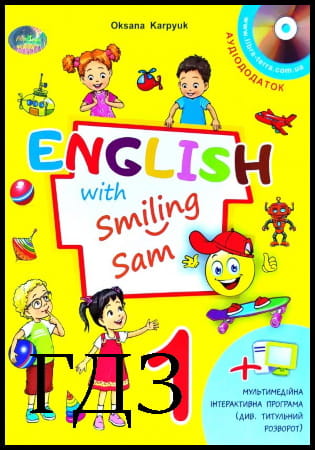
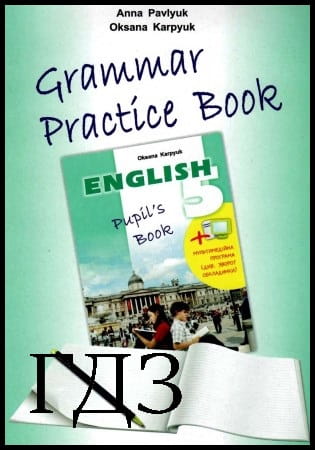
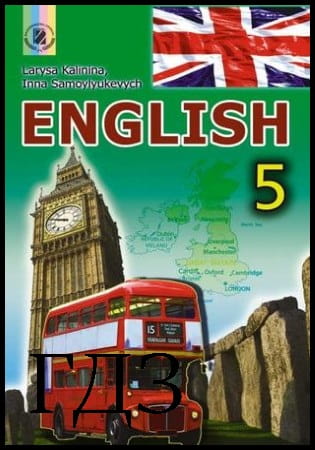
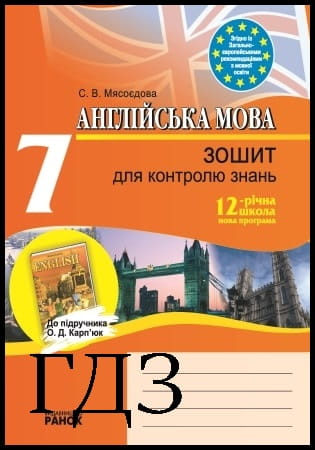
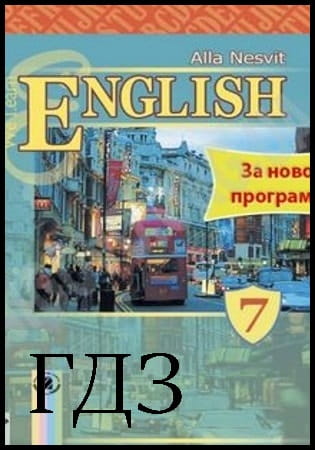
![ГДЗ Природознавство 5 клас. Підручник [Ярошенко О.Г., Бойко В.М.] 2018 ГДЗ Природознавство 5 клас. Підручник [Ярошенко О.Г., Бойко В.М.] 2018](/uploads/posts/2019-04/1555779316_5_p_y_u2018.jpg)
![ГДЗ Основи правознавства 9 клас. Підручник [Наровлянський О. Д.] 2017 ГДЗ Основи правознавства 9 клас. Підручник [Наровлянський О. Д.] 2017](/uploads/posts/2019-02/1550928122_9k_p_n_2017.jpg)
![ГДЗ Українська мова 8 клас. Підручник [Глазова О.П.] 2021 ГДЗ Українська мова 8 клас. Підручник [Глазова О.П.] 2021](/uploads/posts/2021-10/1633720388_8k_y_g_2021.jpg)
![ГДЗ Вступ до історії 5 клас. Підручник [Гісем О.В.] 2018 ГДЗ Вступ до історії 5 клас. Підручник [Гісем О.В.] 2018](/uploads/posts/2019-07/1564163269_5k_i_h_2018.jpg)